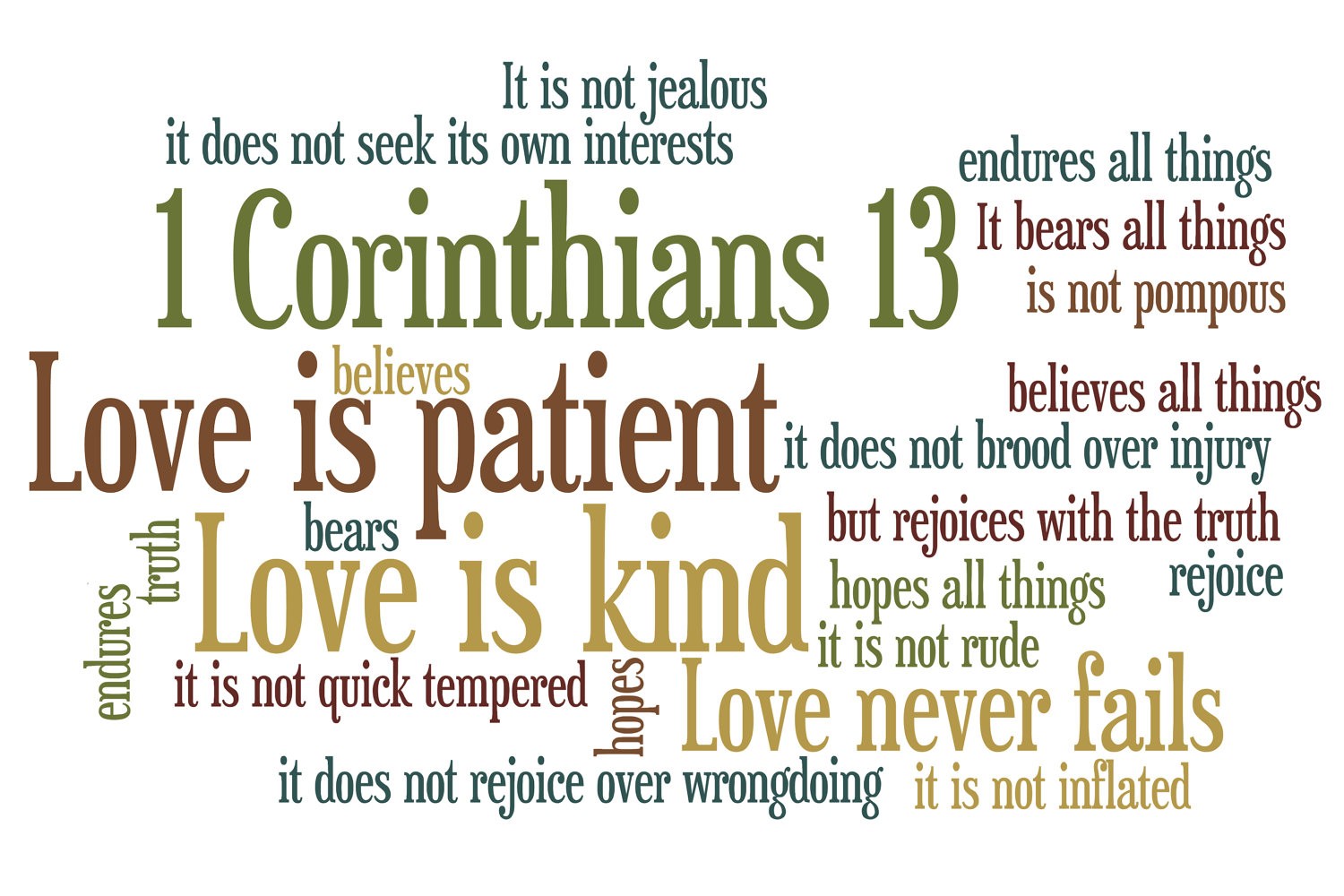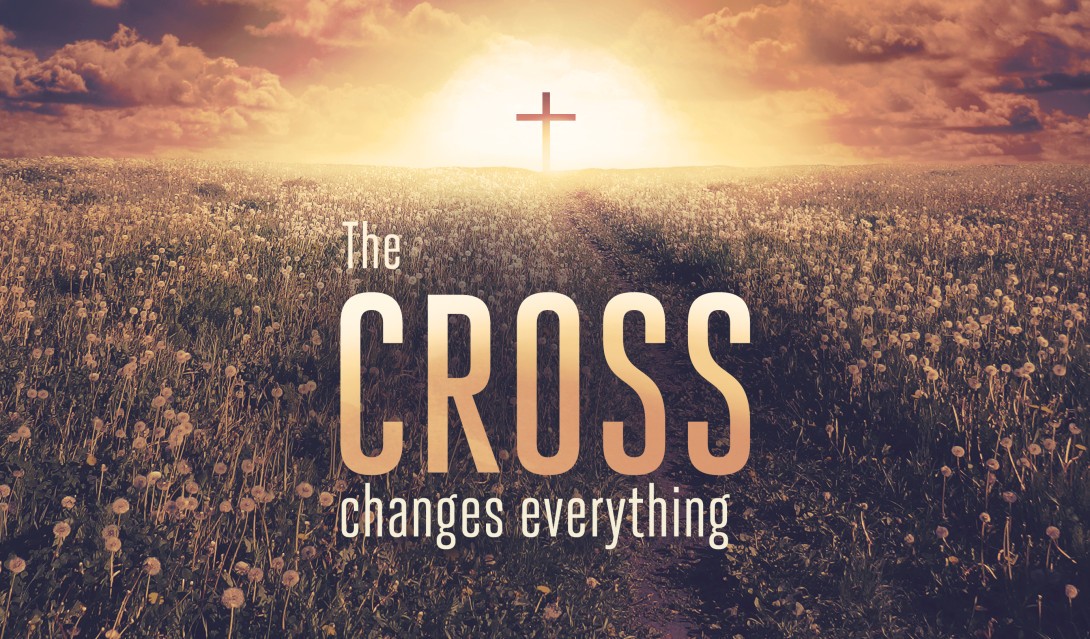This Short Study will take us on an adventure, where we will find and learn how to use the “Keys to the Kingdom.”
“Binding & Loosing” By Pastor G. E. Newmyer
“And I will give unto thee the keys of the kingdom of heaven: and whatsoever thou shalt bind on earth shall be bound in heaven: and whatsoever thou shalt loose on earth shall be loosed in heaven.” – Matthew 16:19 (KJV)
“Whose soever sins ye remit, they are remitted unto them; and whose soever sins ye retain, they are retained.” – John 20: 23 (KJV)
What does the Bible say about Binding & Loosing? The subject of “binding and loosing” has become popular in Christian circles; so wouldn’t it be nice to find out what the Bible says about it? Wouldn’t it be helpful as well, to learn how Jesus and the other disciples carried out the tasks of binding and loosing?
Finding the premise of “binding and loosing” is only half of the task; learning the method in which to apply the premise in a Godly manner, is the other half. The subject of binding and loosing more notably begins around Matthew 16:16 when Jesus asked the disciples, “Who do men say that I am?” Some responded by saying, “Elijah,” while others said “a prophet.” But then, Jesus drew the question down to the disciples by asking, “Who do you say that I am?” In so doing, we can all begin to gain discernment regarding what was about to take place and what was about to be taught in the process.
Jesus never said, “Who does the Father say I am?”; yet it would be the Father who would give information through Peter when Peter was questioned by Jesus. However, the first time that Peter obtained the revelation (about who Jesus is/was), was the day after the feeding of the five thousand (Jn 6:68), and another encounter happens several days later.
There are times when we are “given a Word” from the Lord for a specific event, to encourage us at the time; and according to Scripture, Peter “received a word” about “who Jesus was,” but was using his responses to Jesus too often, since he really didn’t know where the knowledge (of who Jesus was) came from until Jesus told him. Later he will have another “word,” only it will be from Satan.
So, again, in these passages of Scripture, we see that Peter received two “words,” (leading to his response to Jesus), yet he didn’t know the source of either until Jesus told him.
Upon this Rock: Regardless of Peter’s lack of understanding at the time, about the source of his inspiration regarding Jesus… we find that Peter was blessed, not for having received the Word, but for being “among the Rock.” The Greek word for Peter means a “part of a rock,” not the entire thing.
The word used for Rock means a great Rock. Peter was not “the Rock”; he was part of it, as were John, James, and the other disciples. Jesus said “upon this Rock” which is a present tense wording showing that the Rock was in place.
Then Jesus said, “I will build My Church,” which is a future tense statement, indicating the Church “would be built.” The early church, as we do, regard Pentecost to be the birth of the Church, when the Holy Ghost brought the Gift of the Spirit. The Rock is the Body; thus no one is going to be “of the Church” unless they are first “of the Rock.” The paradox is…. how “Zion of the earth” is “a mount,” yet the city of Jerusalem was built by men on Zion. In our case we build the Rock (Jude 22-23), but Jesus builds the Church on the Rock.
Matthew 16:19 tells us that Jesus will give us the Keys; but at the time that He spoke to the disciples he said, “I will give”, which shows that they had not yet been given the keys then.
Some of us have been told that Peter is the Rock; if that is the case we’re in sad shape. Just a few verses later Peter tells the Lord, “Be it far from You, this shall not be unto Thee” (Matt 16:22). In response Jesus said, “Get thee behind Me Satan”; if Peter was the Rock, it means the Rock quotes Satan, which can’t be. The wording of Peter was with regard to a Jewish idiom meaning, “have pity on yourself, make God stop it.” Peter only heard the part about “suffer many things”, but he didn’t hear, “be raised again the third day.” (Matt 16:21). All of this ties into binding and loosing.
The Keys which are given to us: The keys are given to us, and we then, have the power to bind or loose; yet “where” we do this only involves heaven and earth, while hell is not mentioned. So, the keys are only with regard to something we do on earth…such as, to “loose something of heaven,” or to learn of those elements which we don’t do on earth which could “bind something in heaven.”
We find addition information helping us to define all of this in Matthew 16:24 when Jesus says, “If any man will come after Me.” The all important word “If” means, that a choice has to be made, one involving the Keys. After the decision is enacted to follow Jesus, we learn of these requirements, “let him deny himself, and take up his cross” (Matt 16:24). Both are acts of death, yet we enter this process to gain life. He is the full verse….
“Then said Jesus unto his disciples, If any many will come after me, let him deny himself, and take up his cross, and follow me.” – Matthew 16:24 (KJV)
To deny the self is not to deny all we are, just the “self-nature or the fallen nature.” To take up our cross entails imputing the flesh, along with the old nature, dead. Then we can follow Jesus to the grave to gain victory over the ways of the flesh, and then we can obtain the Power of the Resurrection.
What ceases at the Cross: Jesus told us, that born of the flesh is flesh; the word Born means to “associate with.” Thus our souls “related” to the flesh and matters of the flesh, since the flesh was our connection to society, or our world. So, we used the flesh to get what our souls wanted. And as those without spiritual direction, we also used the deceitfulness of riches, the lust for other things, which included the “lust of the eye, the lust of the flesh and the pride of life.”
The Cross however, is the place where many things cease in our lives, such as how the flesh can have dominion over us, or how the rulers of darkness can control our emotions; plus we see a change in our relationship to the Law of Moses and to the Ten Commandments (defining sin,) both which were, in a sense, “against us”; thus, the limitations of the elements of the “Old,” also cease at the Cross. (Col 2:14-16).
Any human being “in the natural” who assumes that they can actually “do” the Ten Commandments without fail, is living an illusion. In Romans, Chapter 7, Paul tells us that before “being delivered from the law”… one who wanted to serve God had to do the service through the flesh, by using the old man; this therefore meant, that the Commandment “Thou shall not” (& Covenant) would fall on them, convict them, and then sentence them to death, (since none of us can “do” the Ten Commandments without fail).
However, Romans chapter 8 tells us a different story; there we see the good result of denying the self, picking up the Cross, receiving the Holy Spirit in order to accomplish the works of God…all without violating the Commandment.
Later Peter will ask Jesus, “how often shall my brother sin against me, and I forgive him, till seven times” (Matt 18:22). Peter was looking for the loophole, the place where forgiveness ends and retribution takes over. Jesus not only gave him an answer far exceeding his original request, but told a parable.
The Parable was about a man who owed so much, that it would take five to seven generations to pay it back. The man begged the lord that he owed the money to, and this lord had Compassion and “loosed” the man (Matt 18:27). Meanwhile, upon being set free, the same man found someone who owed him a little amount. In fact it was so little, that it wasn’t worth the trouble of asking for it; but he demanded the money while his victim begged and used the same pleading words, that this man used before the lord who had just set him free. The difference was, that this man, who was just shown mercy, refused to show the same compassion to someone else that had been given to him; thus he had the man Bound (Matt 18:30).
When the lord heard about this incident, he was “wroth”; he couldn’t understand why, after giving the man compassion, that he could find it within himself to refuse to give others the same compassion; and so, the lord ordered the man to be picked up once again and then given over to the tormentors (Matt 18:34).
Then Jesus continues by saying, “So likewise shall My heavenly Father do also unto you, if you from your hearts forgive not everyone his brother their trespasses.” (Matt 18:35 – KJV).
Later Jesus would tell the disciples, that in order to get the mountain of cursing off our heads we must forgive (Mark 11:22-26).
“For verily I say unto you, that whosoever shall say unto this mountain, Be thou removed, and be thou cast into the sea; and shall not doubt in his heart, but shall believe that those things which he saith shall come to pass; he shall have whatsoever he saith.” – Mark 11:23 (KJV)
Ingress Aires of Majesty on High: Much later Jesus produced the “Ingress Aires of Majesty on High,” a fancy name for when Jesus breathed on the disciples (Jn 20:21-22).
“Then said Jesus to them again, Peace be unto you: as my Father hath sent me, even so send I you.” And when he had said this, he breathed on them,, and saith unto them, Receive ye the Holy Ghost: Whose soever sins ye remit, they are remitted unto them; and whose soever sins ye retain, they are retained.” John 20:21-23 (KJV)
The title comes from the action, yet it’s a classic lesson on binding and loosing in the Godly sense. The word “Ingress” means “permission to enter”; and it comes from the Latin. The word “Aires” means the “Breath of Jesus.” The premise was granting permission to “receive the Holy Ghost,” which came on Pentecost; but the prerequisite had to do with loosing and binding.
A Commandment, not a request: When we “Loose” someone from our unforgiveness, we “Loose” the Father’s Mercy from heaven; but if we refuse, we bind the Father’s Mercy in heaven, while binding ourselves to earth. Since we have the Keys, the first order of business is in our hands.
How then do we forgive the unforgivable? We are able to do this by faith; we don’t feel like it, we really don’t want to, but we know this area is a Commandment, not a request. We must discount our feelings and emotions, and pray in faith, or better…we must pray the prayer of faith. We look to the time when we will be able to remit the sins done unto us, which is the hope set before us; we doubt not, but believe our that obedience will be accomplished.
The decision: The faith issue is more of a decision. We engage in the decision and then the breath of Jesus takes over, reaching to the Mercy of the Father; and so, we have the authority and power to forgive.
A church father once said, “Unforgiveness is like taking poison, hoping the other person dies.” It’s not easy to forgive some; there are pains, hurts, or scars. But we are in the business of healing. How can we ask other people to receive the Forgiveness of the Father, if we hold unforgiveness? We can’t even receive the Forgiveness of our sins, unless we by faith, enter this area. We must Loose the person from our unforgiveness, in order for the Mercy of God to be loosed on us.
Day of Pentecost, in One Accord: On the Day of Pentecost, the 120 were praying in One Accord. If the prerequisite was to remit the sins done unto them, what do we think the One Accord was? They were entering the Ingress Aires; and the Breath of Jesus was the Authority and Power to accomplish the act. Perhaps we need a fresh breath of Christ in our lives, and if so…all we need do is ask.
Binding is an interesting word; it means “To restrain,” or “To put under an obligation,” or “To enclose.” We want someone to pay for the wrongs done unto us; but are we willing to pay for the wrongs we have done others? We also said things or did things to hurt others; and we did things in the world hurting the Lord. But He is willing to forgive us without our having to pay the tormentors. All the Father is asking, is for us to do unto others, what He is willing to do for us.
We bind people to an obligation; we demand their apology and we want some validation of our innocence as well as of their guilt; and if they don’t provide it, someone else must. This not the same Mercy the Father granted us, and we can’t use manipulation on the people we are forgiving either. The famed, “I forgive you because the Lord has commanded me to”, is right out of the pit of hell. First, this comment indicates that the other person is so guilty, they should die. But at the same time, we are pronouncing our total innocence. However, we may have provoked the words they spoke, thus we could have contributed to it.
At times we have a stronghold; we think something was said, when it wasn’t. We thought about it for so long, we think it really happened. We want validation, yet the Bible tells us, “Be not overcome with evil, but overcome evil with good” (Rom 12:21).
Bound under darkness: At times we want to bind the devil, yet in Jude we find that God has reserved the fallen angels in everlasting chains under darkness unto the Judgment (Jude 6)….
“And the angels which kept not their first estate, but left their own habitation, he hath reserved in everlasting chains under darkness unto the judgement of the great day.”
If we think that the devils are not bound now and that God failed…..well… Not hardly. Not only are the devils bound; but they are “under darkness.” There was a man who was so possessed, that the demons called themselves “Legion” (Mark 5:9). However, as “demon possessed” as this man was… the same demons could not stop him from worshipping Jesus (Mark 5:6).
“But when he saw Jesus afar off, he ran and worshipped him.” – Mark:5:6 (KJV)
Bind the strongman: Jesus did tell us to “bind the strongman”; and the strongman is the “old nature,” also known as, “the spirit of the world opposed to the Spirit that is of God.” Jesus goes on to define this further, telling us how there must be a “tree change” in order to bring about good fruit (Matt 12:33).
The tree is known by his fruit; “Either make the tree good, and his fruit good; or else make the tree corrupt, and his fruit corrupt: for the tree is known by his fruit.” –Matthew 12:33 (KJV)
He wasn’t saying, that what He was asking of us was impossible; nor was He saying for us to stop eating apples, and begin to eat oranges. He was merely making a statement of fact; that no one can use their unsaved soul to save their soul. There must be a Godly addition inserted by God, to bring about the premise of “the Greater He” also known as “Another Comforter.”
Then Jesus tells us that it’s up to us to make the change (either make the tree good, etc.….); but how can that be? Peter couldn’t do it; and surely we can’t. There must be something to bring about the change, and, there is. Jesus continues to show how the strongman is within; in fact, the strongman is the old nature, also the source of corrupt communication, “for out the evil treasure comes forth evil sayings.” (Matt 12:33-36).
Then Jesus says, “by your words you shall be justified, and by your words you shall be condemned” (Matt 12:37).
But how did “this” all start?…Well, we see…. “But when the Pharisees heard it, they SAID…” (Matt 12:24). And Jesus answered the“fig tree.” But, they were being judged by their “fruit.” What was their retort? The same as any Pharisee would offer in saying to Jesus, “show us a sign.” (Matt 12:38).
So…what is casting out devils? It wasn’t “Jesus Christ and His traveling puppet show; rather… these were a manifestation of the power of Christ.
The Will of the Father….The Will of the Spirit: What is the will of the Father? It is, “to forgive others as God for Christ’s sake has forgiven us.” If we are forgiven, we have the ability to forgive.
The Will of the Lord is for us to be filled with the Spirit, and thus able to face events with praise songs in our hearts, giving thanks for all things, whether we like them or not (Eph 5:17-20). The will of the Spirit is for us to walk as examples of Christ on this earth.
Jesus as the Son of Man: Mercy is the means by which Jesus operated as the Son of man before the Resurrection; whereas Grace is a product of the Glorified Jesus. We “come Boldly to the Throne of Grace to Obtain Mercy, then Find Grace.” This Scripture speaks of two different things, one is Obtained and one is Found.
Grace is the Gift, given to us, but it’s not our sole possession, it’s a gift which we are accountable for. Mercy is not a gift, it’s a benefit we Obtain. Grace and the New Man are one in the same, as Grace and Blood are related. Mercy, however, is Body (Body of Christ) related. If Jesus “will build from the Rock,” then Mercy is what He is looking for from us, as a primary building element.
Matthew is the only scribe of the New Testament that uses the phrase, “kingdom of heaven,” some 32 times. Mercy is related to the kingdom of heaven, Grace to the Kingdom of God.
In Luke 13:10-17 we find a woman who was Bound by Satan, yet Jesus said, “Woman, you are Loosed from your infirmity.” Here we find that Satan had done the binding, and Jesus the Loosing. Herod bound John the Baptist (Matt 14:3), the mad man was bound (Mark 5:4), and there were those who bound Jesus (Mark 15:1). Yet Jesus went about Loosing people; so, even when we cast devils out, we are loosing the people from the demonic realm.
Two Realms: In Matthew 16:19, the Binding and Loosing is limited to two realms: the kingdom of heaven is a place, and the Kingdom of God is within. “The Keys” are not for gaining entry into the kingdom of heaven, they are the “Keys of” the kingdom of heaven and so we see the term, “Whatsoever,” not “whosoever we bind on earth shall be bound in heaven,”; we see… “but whatsoever,” not “whosoever we loose on earth will be loosed in heaven.”
Hell is not a factor and the devil is not a factor in this equation: this relates to those in the kingdom of heaven who desire to have the fullness of the Kingdom of God. If we bind people to our unforgiveness, we have bound the Father’s mercy in heaven. If it’s the case (that we have rejected this commandment regarding Mercy) we also reject the words of Jesus, “Father forgive them.”
However, if we Loose people, or as it says in John, if we “remit the sins done unto us,” then we Loose the Father’s Mercy from heaven for us.
The book of First John speaks of the “spirit of antichrist” in the way that it differs from the Spirit of Christ. The “test of the spirit” is between two spirits, not between fifty or so. First John talks about brothers, both say they are in the Light, and one proves it, while the other’s actions prove that he is not.
Anyone who says that they are “of the Light,” yet they hate (slander) their brother, are in darkness even until now. God considers an attack against any member of His family, as an attack against Him. Even the Old Covenant considered sin against a member of family, a sin against God.
When we slander one another or mock one another, we are acting from the spirit of anti-christ. This spirit is not “anti-God”, or “anti-Jesus”, or “anti-Spirit”, it’s opposed to the Christ nature…. it’s a spirit claiming Christ, but acts in opposition to the nature of Christ.
Slander and Libel: Paul said that the “spirit of the world” is opposed to the Spirit that is of God (I Cor 2:12) and John is saying the same thing. Slander is based on the intent. For instance, a statement could be fact, but if it’s spoken only to injure a person or their reputation, it’s slander. Libel is based on lies, or twisted facts.
First John points out the importance of continuing our walk in Mercy, as we apply Mercy not only to those of the past, but to those of the present as well.
The Nature of Mercy: “Mercy” is willing to forgive, even if there is no cause to do so; and the second any cause comes, Mercy is applied. Like faith, we don’t run to find it, we have it ready to be activated as the need arises.
Wheat and the Tares: In the parable of the Tares and Wheat we find the methodology of the enemy. This parable addresses the last days; and we’re in the last days. “The field” is One and there is only one Master of the field and house. The Master planted only Wheat, since it’s all that the Master knows how to plant. The Master doesn’t have any Tares, so He can’t plant any; thus we can’t blame the owner of the field for something He didn’t plant.
The enemy however, planted Tares in the same field; and it’s all he knows how to plant. Yet, after planting, the enemy left, but the tares remained. Can we blame the enemy? No, the tare is there, and blaming the enemy isn’t going to remove it. Gee, should we forgive the enemy? No, the tare is the concern, and removal of the tare, or better yet… being loosed of the tare is the goal.
A Tare appears just like a Wheat, except it’s hollow inside; and it has no heart. Tares are tough, they refuse to be broken. The servants went into the field and saw the Tares and then, they ran to the Master. The Master said, leave the Tares alone, they will be taken care of by the reaping angles.
The basic point here is… leave the false ones alone. Then, we are to act as Wheat, allowing our inner Light to shine. And, like the servants, others will see that the wheat has the heart to prove it, and the tare has no heart.
The dividing sea: However, from the parable we can see how the enemy works, evidenced by the children in the wilderness. Pharaoh was over them in Egypt, just like the “prince of the power of the air” was over us when we were in the world. When the children left Egypt they found that Pharaoh couldn’t cross the dividing Sea.
Too close to Egypt: We leave the world, and the devil can’t cross into the kingdom of heaven, unless we grant him permission (place), which is really not an example of, “the devil coming into the kingdom.” When we “give the devil place,” we are using the wiles of the devil as we move back to his realm. If the devil is beating us up, we’re too close to Egypt.
When the children entered the wilderness, Pharaoh was out of the picture, but not the tares he planted. The children were convinced that anyone who told them what to do was a slave master, thus they allowed the past to govern their present. They mixed the things of Egypt into the events of the wilderness, failing to mix the word spoken to them with faith. Did they have faith? Yes, the Book of Hebrews tells us, they crossed the Red Sea by faith (Heb 11:29). Unfortunately they left their faith at the Sea; the type of faith they held was “faith of desperation” and after all…Pharaoh was close behind. So when the Sea parted, the best thing to do was escape Pharaoh.
Egypt and the wilderness were two completely different things, Egypt was run by “the waster,” and all the waster knows how to do is destroy. But the wilderness was run by God, as a training realm, in order to learn how to govern the promised land. The children considered God and Moses task masters and they confused “being discipled” with slavery. They failed to leave the past behind to gain the newness of God in the wilderness. In essence they failed to Loose the past, in order to find the present. Unforgiveness does the same thing, it binds us to the pains of the past, while it hinders our present and future.
The point thus far shows that we must have the examples to couple with the premise, or we will end doing for the devil, what he can’t do for himself; and the final point in all this is with regard to the Real Binding and Loosing.
Faith: In the teachings in Scripture regarding this subject, we find that they pertain to forgiving, even forgiving the unforgivable by faith. We have our continual belief; but faith is the substance of the unseen, looking for the hope ahead to become manifested.
Faith is seen, but it comes from the unseen; and it doesn’t produce the unseen. It takes us to the hope set before us. Forgiving in many cases, of the pains of the past, is more of a decision, then an application of faith.
A state of mind: Forgiving in the present, is a state of mind; it’s having and applying the Father’s Mercy in the instant. At times a smile is all we require to take the fire out of the dart. We are a special people; we impute the flesh dead, yet we live by the Power of the Resurrection of Jesus by the Spirit. We make the decision not to forgive; and we can make the decision to forgive. Like belief… it’s based on decision, we can by faith, release the unforgiveness, thereby gaining the Father’s Mercy; and with the Mercy we will live a better life. We will be at complete peace with God, knowing we are doing the will of the Father. Selah.
Note: The use of SOZO Bible Study Lessons, Newsletters or Short Studies (written/penned by Pastor G. Evan Newmyer as scribe and author, prior to his passing from this world) has been given to Ann M. Wolf by written permission from the author, as was customarily granted to alumni of the Sozo Bible Institute. This limited permission is given under clear agreement to never “charge” specific amounts for the Lessons with the intention of obtaining specific profits, but rather to share the material with others as the Spirit leads, for the purpose of “edification and encouragement,” on a free will offering basis, and while honoring the biblical principal to “teach the truth in love.” We ask then, that the desires of the original scribe (Rev. Newmyer) be respected; therefore the material can be shared among those who are dedicated in their study of the Bible, but shared freely on an offering basis and with respect to the copyright laws of the land and states. All rights are reserved. Read More.
Learn about lending a hand to MOTL Library: Read More.
King James Version – KJV: For greater understanding of these commentaries, please use the Authorized Version of the King James Bible for confirming the Scripture passages mentioned. Please see the article, “Why KJV” by Ann M. Wolf for information regarding why we use KJV. Thank you for visiting our Sozo Short Bible Studies area.






